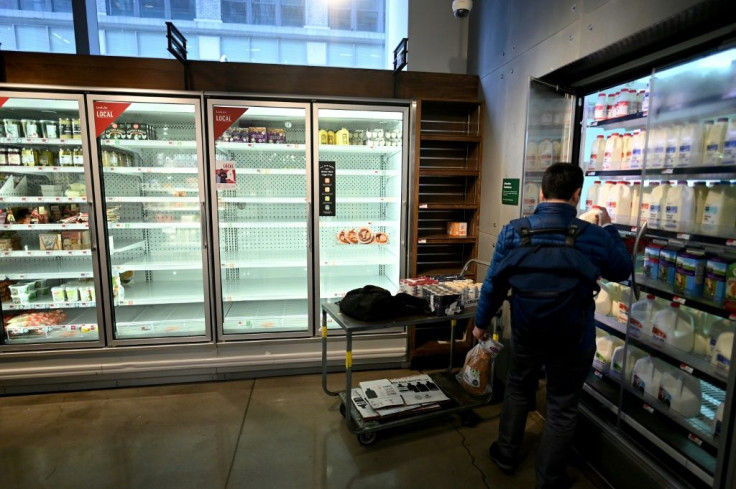Coronavirus News: Experts Warn It May Be Time to Keep Shoppers Out of Grocery Stores

KEY POINTS
- Dozens of grocery workers around the nation have died from being exposed to the coronavirus
- Experts suggest it may be time to ban customers from shopping inside supermarkets
- "Careless customers" are "probably the biggest threat" to frontline workers in supermarkets
Supermarkets may be one of the last bastions for customers to shop in during the coronavirus pandemic, but experts warn that it may finally have become too dangerous to let the public inside grocery stores.
Until now, most grocery stores have kept their doors open to the public, though they've adopted a set of restrictions such as masks, reduced capacity and altered shopping hours, as well as temperature checks in a bid to keep workers and visitors safe. But this has done little to keep grocery workers from dying from the coronavirus, prompting March Perrone, president of the United Food and Commercial Workers' union, to proclaim that "careless customers" are "probably the biggest threat" to workers.
Experts have suggested that it may have become too dangerous to continue allowing customers to browse through grocery stores on their own. It may in fact be time to have larger chains "go dark" to the public and instead offer only curbside pickup or home delivery. This is a measure several smaller chains have already undertaken.
"It was clearer that there was no real way to protect my staff and the public, especially as we served 960 people a day on average in a 4,200-square-foot store," said Mike Houston, general manager at Takoma Park Silver Spring Co-op in Takoma Park, Maryland. "I'm unwilling to put grocery store employees, essential though we are, in a position to risk what can be a fatal infection." Houston closed his grocery store all the way back in late March, and has since switched over to complete curbside pickup for any potential customers.
Last week, the U.S. Labor Department recommended that retailers in the country begin offering curbside pickup or utilizing a drive-through window to protect vulnerable workers from coronavirus. However, for some locations, switching to solely pickup and delivery systems is simply not feasible, considering how backed up they already are with online orders in addition to demand in the store. This would also require more workers out in the store fulfilling orders. It wouldn't make a difference between customers being in-store with the amount of bodies there.
"We have no choice. They have to stay open. The grocery delivery system has not matured to the point where we can switch to an entirely remote system," said Seth Harris, former Obama administration deputy secretary of labor.
It remains to be seen what grocery stores are going to choose going forward, but it won't be a surprise if they end up closing their doors to the public.
© Copyright IBTimes 2025. All rights reserved.





















